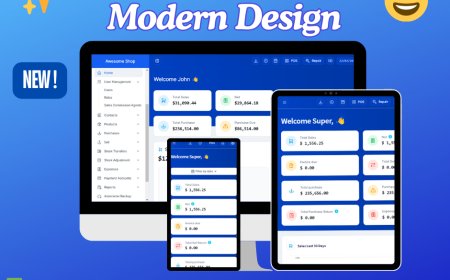OpenAI’s Codex: The Rise of Agentic Coding Tools

On May 16, 2025, OpenAI unveiled Codex, a groundbreaking AI coding agent that’s shaking up the software development world. Integrated into ChatGPT, Codex is part of a new wave of “agentic” coding tools designed to act like virtual teammates, handling complex programming tasks with minimal supervision. But what does this mean for developers, businesses, and the future of coding? Let’s dive into this tech revolution and explore how Codex fits into the broader landscape.
What Is Codex, and Why Does It Matter?
Codex is a cloud-based software engineering agent that can write code, fix bugs, run tests, and even propose pull requests—all while working on multiple tasks simultaneously. Powered by codex-1, a specialized version of OpenAI’s o3 reasoning model, it’s built to produce cleaner, more reliable code that mirrors human coding standards. Unlike traditional AI coding assistants that act as autocomplete tools, Codex operates autonomously in a secure, isolated cloud environment, preloaded with your GitHub repositories to reflect your development setup.
Available initially to ChatGPT Pro, Enterprise, and Team users, Codex is rolling out as a research preview, with plans to expand to Plus and Edu users soon. OpenAI’s vision, as stated by their Agents Research Lead Josh Tobin, is to transform ChatGPT into a “virtual coworker” that collaborates on large-scale tasks, not just quick fixes. This aligns with a broader industry trend where AI agents are taking on more responsibility, shifting developers’ focus to higher-level design and oversight.
The Agentic Coding Revolution
Codex isn’t alone—it’s part of a new cohort of agentic coding tools that are redefining software development. Tools like Devin, SWE-Agent, OpenHands, and competitors from Anthropic (Claude Code) and Google (Gemini Code Assist) are designed to work independently, tackling tasks without constant human input. Imagine assigning a project to an AI agent via a platform like Slack and checking back when it’s done—that’s the future these tools are aiming for.
According to industry benchmarks like SWE-Bench, which tests AI models on unresolved GitHub issues, agentic tools are making strides. OpenAI claims Codex’s codex-1 model scores 72.1% on SWE-Bench, outperforming OpenHands’ 65.8%, though these results await independent verification. However, reliability remains a concern. As Robert Brennan, CEO of All Hands AI, notes, even the best agentic coders can only solve about three out of four problems autonomously, requiring human oversight for complex systems.
How Companies Are Using Codex
Early adopters are already seeing Codex’s potential. Cisco is exploring how it can accelerate ambitious projects, while Temporal uses it to debug issues, write tests, and refactor large codebases. Kodiak, an autonomous vehicle firm, leverages Codex to improve code reliability, and Superhuman employs it to boost test coverage and allow non-engineers to suggest lightweight code changes. OpenAI itself uses Codex internally for repetitive tasks like refactoring and writing tests, freeing up engineers for more creative work.
But it’s not all smooth sailing. Codex operates in an air-gapped environment with no internet access, which enhances security but limits its ability to interact with external APIs. Tasks can take 1 to 30 minutes, and users can’t intervene mid-task—yet. OpenAI plans to add features like mid-task guidance and broader tool integrations, including with Codex CLI, their open-source terminal agent.
The Bigger Picture: AI’s Role in Coding
The rise of agentic coding tools reflects a seismic shift in software development. Tech giants like Google and Microsoft report that 30% of their code is now AI-generated, a trend Codex will likely accelerate. But this raises questions about the future of human developers. While Codex is designed for professional coders, its ability to empower less-skilled users has sparked debate. Could tools like this replace software engineers? OpenAI’s Jerry Tworek suggests a future where AI reliably transforms project specs into working software, but for now, human oversight remains essential.
Security is another concern. OpenAI has built safeguards into Codex to refuse requests for malicious software, and its isolated environment minimizes risks. However, AI coding tools are prone to errors—studies show they can struggle with debugging and even introduce vulnerabilities. Developers must still review and validate AI-generated code before deployment, a point OpenAI emphasizes.
What’s Next for Codex and Agentic Coding?
OpenAI’s launch of Codex comes amid rumors of a $3 billion acquisition of Windsurf, another AI coding platform, signaling their aggressive push into this space. Competitors are also heating up—Cursor, a popular AI coding tool, reportedly hit $300 million in annualized revenue by April 2025. As agentic tools evolve, we can expect more seamless workflows, with AI agents handling entire development cycles from design to testing.
For now, Codex represents a step toward a future where AI and human developers collaborate more closely. Whether you’re a coder looking to streamline your workflow or a business eyeing the next big tech trend, this new cohort of agentic coding tools is worth watching. What do you think—will AI agents like Codex redefine software development, or are humans still the ultimate coders? Share your thoughts below!
Stay updated with the latest tech trends and global news on Parrotainment!
What's Your Reaction?
 Like
0
Like
0
 Dislike
0
Dislike
0
 Love
0
Love
0
 Funny
0
Funny
0
 Angry
0
Angry
0
 Sad
0
Sad
0
 Wow
0
Wow
0

































